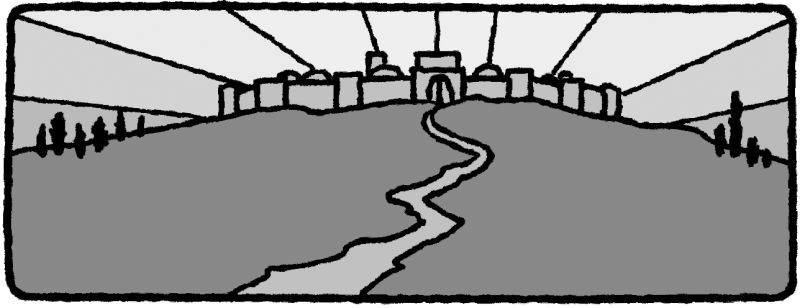Returning to the barracks after a short stint of shoveling coal on a mountain, Sekule informed his commander that he would not bear arms, even in the ongoing Bosnian War.
“I don’t want to shoot people,” he said.
“You must take a weapon,” the commander insisted. “Otherwise, you will have to serve two years instead of one.” Noncombatants were required to serve two years rather than one in the army.
“I don’t care,” Sekule said. “I won’t carry a weapon.”
The commander sent Sekule to an intelligence officer. Only soldiers who were in deep trouble were sent to the officer. He could imprison soldiers.
Sekule explained his position to the officer.
“Fine,” the officer said. “Take a gun and, if you are sent to the front, give it back. That way you will serve only one year instead of two.”
“What do you mean?” Sekule said.
“Agree to carry a gun during training, but the training that you will receive will be on teleprinters instead of the shooting range,” the officer said.
Sekule agreed. He was assigned to office work, helping run military communications by typing on a teleprinter.
The Sabbath turned out to be a bigger challenge than guns for Sekule. Because of the war, Sekule needed to be trained quickly to work on a teleprinter. But he refused to attend training sessions on Sabbath.
Food, also, was a challenge. Military rations were prepared with lard. Sekule’s parents refused to send money for food because they hoped he would change his diet.
Sekule prayed, “Please bless me like You blessed Daniel. He decided not to eat unclean food, and I want to do the same.”
Sekule’s commander didn’t know what to do.
“You won’t work on Saturday?” he asked.
“No,” Sekule said.
“Do you have any suggestions about what we can do?”
“No.”
“You won’t eat meat?”
“No.”
“Do you have any suggestions about what we can do?”
“No.”
The only thing Sekule could eat was bread and tea. In four months, he lost 50 pounds (23 kilograms), dropping to 137 pounds (85 kilograms). He was skin and bones.
Sekule Sekuli´c is an affluent entrepreneur and faithful Seventh-day Adventist in Montenegro. Read more of his story next week. Thank you for your Sabbath School mission offerings that help spread the good news of Jesus’ soon coming in Montenegro and around the world.


